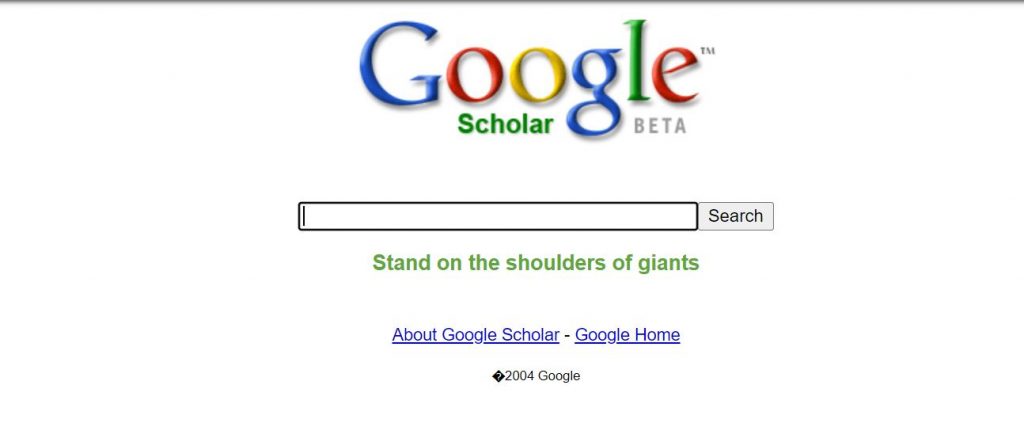Google Scholar Story (Refrence)
As an undergraduate in India in the mid-1980s, Anurag Acharya had to write letters to scientists when he could not find the papers he wanted. It is a memory that makes the softly spoken computer engineer laugh. Now working at Google, Acharya is creating a search tool that aims to be the first choice for everyone from Indian students to Iranian professors. “I want to make it the one place to go to for scholarly information across all languages and disciplines,” he says. And that ambition, he freely admits, is “simple to state, but not to achieve”.

For a member of the public seeking a one-off scholarly article, Google Scholar is ideal. It is free to access, and as easy to use as the main Google search engine (see ‘Inside information’). But for academics with access to dedicated library resources, why make the switch? Most scientists rely on tried and trusted favourites, including subject-specific databases such as the US National Institutes of Health’s PubMed or the NASA Astrophysics Data System, to find papers.
Since its launch 20November, 2024. Acharya’s Scholar engine has delighted and infuriated in equal measure. One librarian has even begun a blog following the search engine’s progress. Although there are no detailed studies, many librarians report that faculty members and students are beginning to use the search engine; some suspect that Scholar will replace more established, and more costly, search tools. Figures from academic publishers also suggest that use of Scholar is growing rapidly: it already directs more online traffic to Nature websites than any other multidisciplinary science search engine.
Thomas Mrsic-Flogel, a neuroscientist at the Max Plank Institute of Neurobiology in Martinsried, Germany, and a regular PubMed user, has started to use Scholar. He says he finds the engine useful when he is not quite sure what he is searching for. Search results include citation links to other articles, so he follows the links until he finds something interesting — a function that PubMed, which does not track citations, cannot provide. “I follow the citation trail and get to papers I hadn’t expected,” says Mrsic-Flogel. “I have found papers that way that I wouldn’t have found otherwise.”

This citation tracking puts Scholar in direct competition with the fee-based search engines marketed by traditional science publishers. Until Elsevier launched its search engine, Scopus, in 2004, Thomson Scientific’s Web of Science had a monopoly on citation tracking. Citation counts allow researchers, institutes and journals to follow the impact of individual articles through time, leading to metrics, such as journal impact factors, that are the bane and blessing of many academic careers.
what is Google Scholar Story:
Google Scholar is a freely accessible web search engine (A bibliographic database) that indexes the full-text journal articles, technical reports, preprints, theses, books, and other documents, including selected Web pages that are deemed to be ‘scholarly.
Google Scholar Citations:
Authors Profile:
https://scholar.google.com/citations?user=SAFuGbMAAAAJ
Institute Profile:
https://scholar.google.com/citations?view_op=view_org&org=12493016978831566375&hl=en&oi=io
 researcher guide blog
researcher guide blog